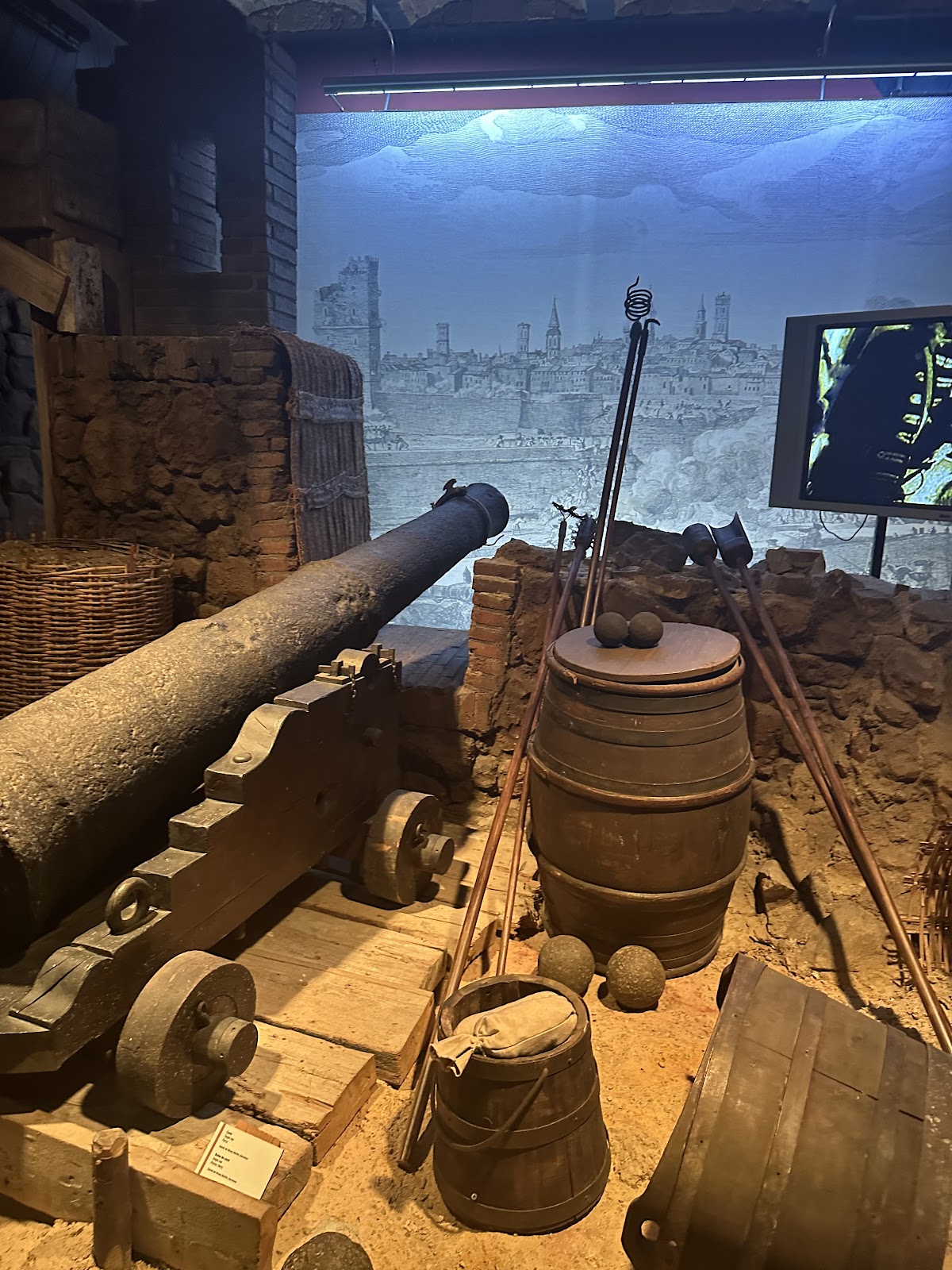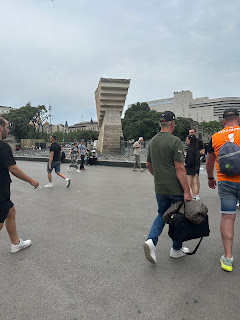The Fall of Barcelona
The Fall of Barcelona
On Tuesday June 10th, I spent a lot of time in the Born District with a couple of my classmates. We started our day by visiting the chocolate museum, then the Picasso museum, did quite a bit of shopping, and finally ended our day at the Museum of Catalonian History. I learned a lot at this museum and thought of a bunch of different blog posts I could create using this knowledge. Typically I am not one to go to a history museum but I am glad I did because not only was it interactive, but also easy to understand with lots of visuals and clear descriptions of what was going on at the time. I was interested in learning more about their 9/11 after one of our tour guides brought it up. Therefore, I am writing this blog post about Spains' September 11th.September 11th, 1714
The date September 11th, 1714, marks the fall of Barcelona during the War of the Spanish Succession. A turning point that is highly significant in Spanish and especially Catalan history. Barcelona fell to the forces of Philip V of Bourbon after a long siege. This effectively ended Catalonia's support for Archduke Charles of Austria, the rival Habsburg claimant other the Spanish throne. The defeat led to the abolition of Catalan institutions, laws, and privileges through the Nueva Plantation decrees, centralizing power under the Spanish Crown.
Connection
To connect what I learned from the museum to what I am learning about in POL 130, I wanted to focus on what type of regime this compares to. The regime that emerged in Spain after September 11, 1714 was a centralized absolutist monarchy under the Bourbon dynasty. The characteristics that helped me decide on absolute monarch were a couple of things. First the centralized power, the kind help supreme authority over all territories in Spain. Secondly the abolition of regional laws and privileges; the Nueva Plantation decrees eliminated the traditional laws and institutions of Crown of Aragon territories, including Catalonia. Another reason was that the French-inspired model brought French Bourbon absolutism to Spain, emphasizing royal control and administrative uniformity. Finally, there was no separation of powers. The monarchy controlled executive, legislative, and judicial authority.
Although the fall of Barcelona predates modern ideologies, the historical memory and symbolism of that event have become deeply tied to modern ideologies, especially in Spanish and Catalan politics. Conservatism can be tied with the fall of Barcelona because it supports the centralized Spanish state and the monarchy that was established after 1714. It views the Bourbon victory as necessary for unity, order, and continuity. It emphasizes tradition, stability, and national unity, aligning with the outcome of 1714. Finally, conservative Spanish parties often resist Catalan separatism and use 1714 as a warning against regional fragmentation. Relating the fall of Barcelona to socialism because socialist tend to acknowledge Catalan grievances and support reigional autonomy, though they usably oppose full independence. They also often frame 1714 in terms of central authority suppressing popular rights, and early example of elite power crushing local communities.
Compare and Contrast
These two different class topics are similar because they both have an emphasis on order and tradition by both valuing stability and continuity. They both have respect for hierarchy because conservatives accept social hierarchies as natural or beneficial, which aligns with the rigid class structure of an absolute monarchy. Lastly, both resist revolutionary upheaval. Some differences between the two topics is that modern conservatism (especially after the Enlightenment) accepts constitutional limits, private property rights, and rule of law. Something absolute monarchs often ignored. Also, many conservatives support representative institutions, even if limited, while absolute monarchs ruled without them. Lastly, conservatives may be monarchists, but they generally favor constitutional monarchy over absolute monarchy today.New Knowledge and Benefits
Before engaging with the history of Spain, particularly the events surrounding September 11, 1714, I did not fully understand the deep impact this event had/has on current Spain citizens to this day. I had known that Spain was a diverse country with different regions and languages, but I didn't realize how events from over 300 years ago, like the fall of Barcelona in 1714, continue to influence contemporary Catalan nationalism, debates over independence, and regional politics. This event is something I can grasp to an extent as the U.S. also had a 9/11. Although, it is not the same and I was not around for either of these events so the more I was able to learn about Spain's 9/11 gave me a broader understanding of other countries and how they struggle.
Learning about Spain's September 11th, especially in the context of Catalan history and identity, offers rich insights. For one, it allows me to have a deeper understanding of regional and national identity. It helps you understand why many Catalans feel culturally distinct from the rest of Spain and how historical memory fuels national identity. Secondly, it helps me connect the past with the present. I get to see how nationalism, and liberalism developed and clashed, even centuries ago, and how they still resonate in today’s politics. Finally, I get a greater appreciation for cultural diversity in Spain. I get to gain appreciation for the Catalan language, traditions, and pride, which are central to the region’s cultural expression.






Comments
Post a Comment